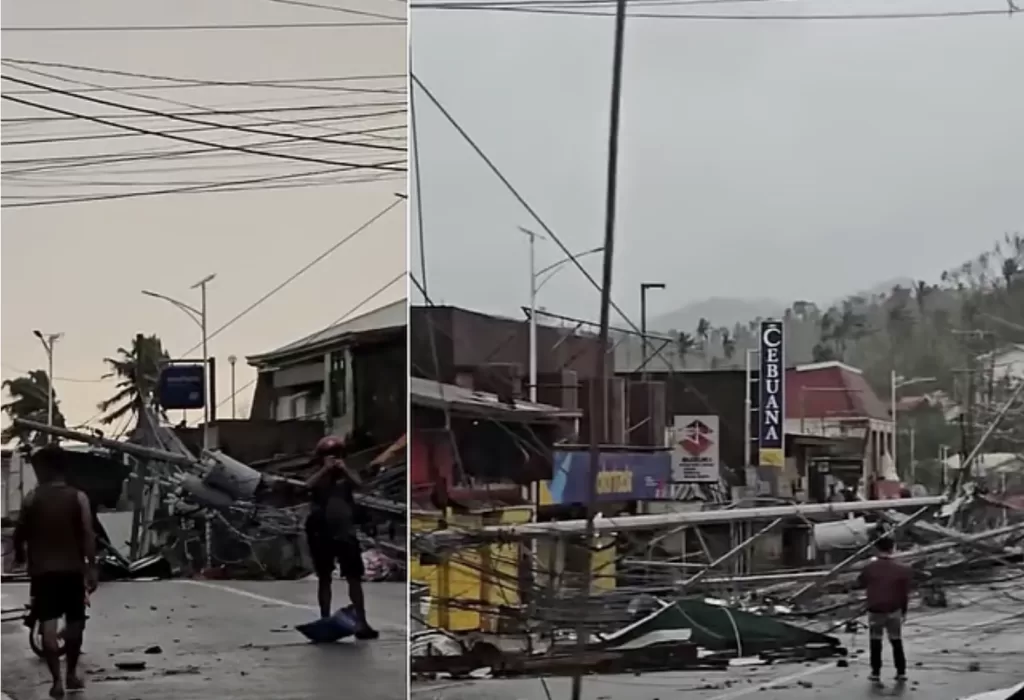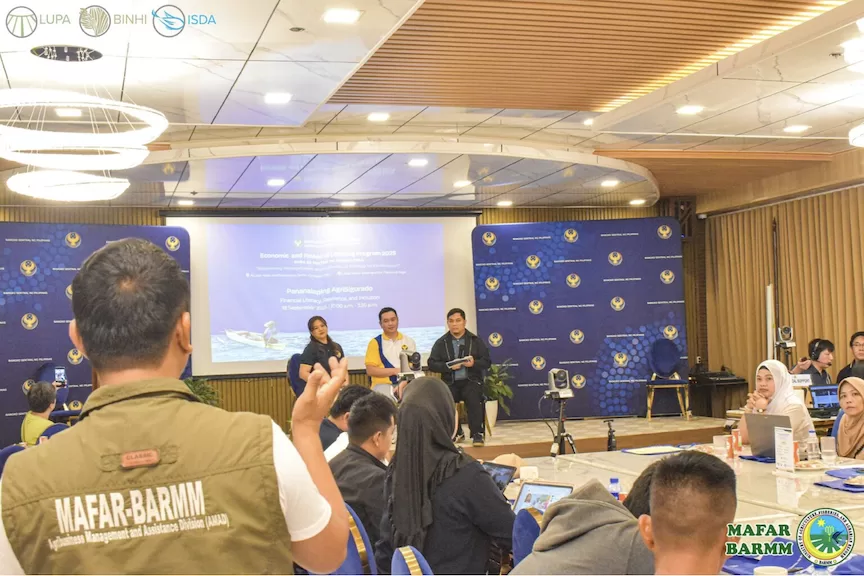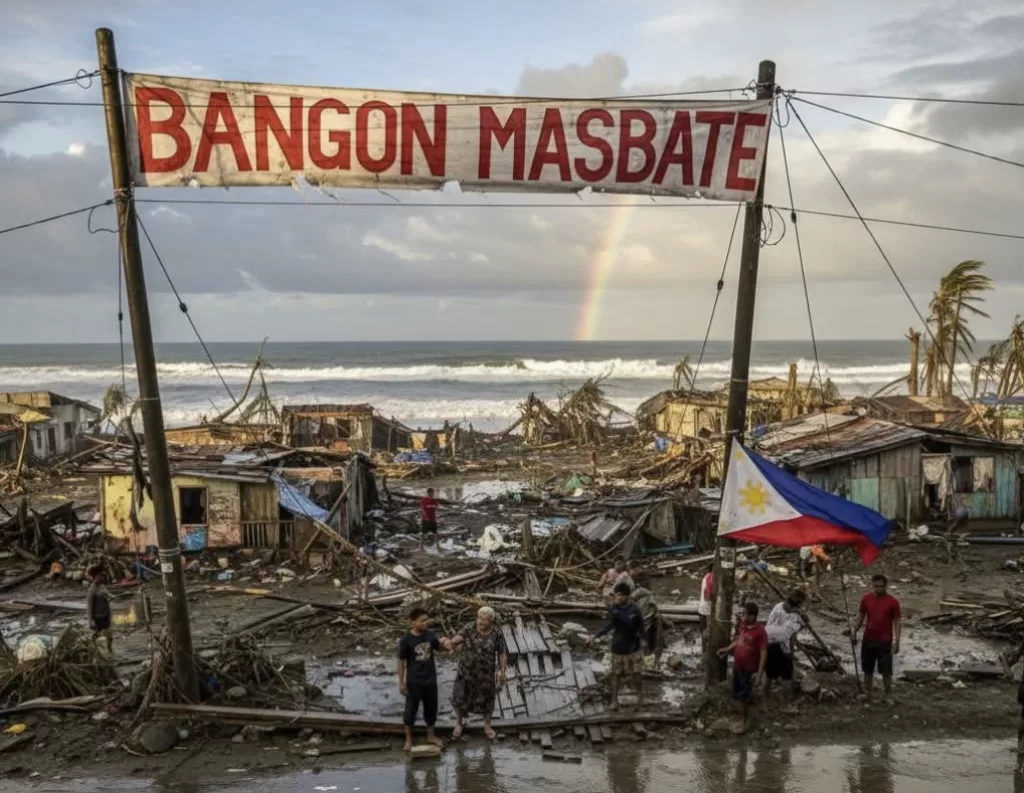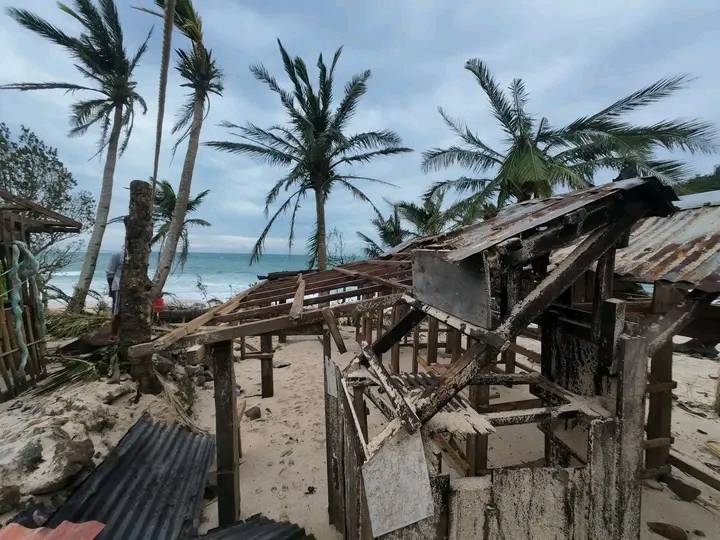As communities in the Visayas and Mindanao grapple with the aftermath of Typhoon Opong, the Bangko Sentral ng Pilipinas (BSP) is stepping up its twin roles of ensuring financial stability and empowering Filipinos with tools for recovery.
From securing cash availability in hard-hit Masbate to advancing financial literacy for farmers and fisherfolk in Cotabato, the BSP is reinforcing its commitment to inclusion and resilience at a time of heightened need.
Ensuring cash flow in typhoon-battered Masbate

In Masbate, where Typhoon Opong left trails of destruction and paralyzed local economies, access to cash and banking services has become a lifeline.
The BSP, through its Legazpi Branch, has been servicing the cash requirements of banks in the province, ensuring that financial institutions can continue meeting the urgent needs of the people.
The central bank has also assured banks operating in Masbate that emergency withdrawals can be accommodated if needed. While some branches have yet to resume operations due to power outages and logistical challenges, alternative channels remain open.
Money service businesses are providing cash-out services to tide over affected residents who rely heavily on remittances and small-scale commerce to rebuild.
“These actions are meant to support communities hit by Typhoon Opong and keep essential financial transactions flowing during recovery,” the BSP said in a press statement.
Officials stressed that they will continue to closely monitor the situation to prevent disruptions in cash availability, which often compounds the hardship faced by families after natural disasters.
Financial education for resilience in Cotabato

At the same time, the BSP is working to address the longer-term challenges that disasters like Typhoon Opong expose. In Cotabato City, the central bank rolled out its Economic and Financial Learning Program (EFLP) from September 17 to 18, 2025, specifically targeting farmers, fisherfolk, and agri-entrepreneurs — sectors that often bear the brunt of typhoon damage.
With the theme “Kaalamang Pinansyal para sa pAGRIsenso at Matatag na Kinabukasan” (Financial Knowledge for Agri-Progress and a Stronger Future), the sessions introduced participants to tools and strategies designed not only for growth but also for disaster preparedness. Topics included agribusiness development, financing and insurance options, digital financial tools, and long-term financial planning.
Importantly, the sessions also delved into Islamic banking and financial services for Muslim communities, ensuring inclusivity in areas where faith-based financial systems play a vital role.
In a recorded message, BSP Deputy Governor Bernadette Romulo-Puyat underscored the generational value of financial knowledge, saying: “Higit pa sa kabuhayan, ang layunin namin ay maibahagi sa inyo ang kaalaman at kasanayan na maaari ninyong ipasa sa inyong mga anak at apo. Isipin ninyo ito bilang puhunan. Hindi lang para sa ngayon, kundi para sa kinabukasan ng inyong pamilya at komunidad.”
Ahead of the main sessions, an offshoot activity was conducted for personnel of the Ministry of Agriculture, Fisheries, and Agrarian Reform (MAFAR) to enhance personal financial management skills. On September 19, participants were given the chance to open accounts and experience first-hand the benefits of formal financial services — a critical step given that 73% of farmers and fisherfolk remain outside the formal financial system, according to the BSP’s 2021 Financial Inclusion Survey.
A strategy of immediate relief and long-term resilience

The BSP’s interventions in Masbate and Cotabato highlight a strategy that goes beyond crisis response.
While ensuring the immediate circulation of cash is essential for survival in storm-hit areas, financial education and access to formal financial systems are equally vital to strengthen communities for future shocks.
By combining emergency measures with education and inclusion programs, the BSP is reinforcing the idea that resilience is both short-term and long-term — making sure Filipinos have access to money when disasters strike and the knowledge to build stronger, more sustainable financial habits afterward.
As the country braces for more extreme weather events brought by climate change, initiatives like these could spell the difference between cycles of loss and a future of empowered recovery.








